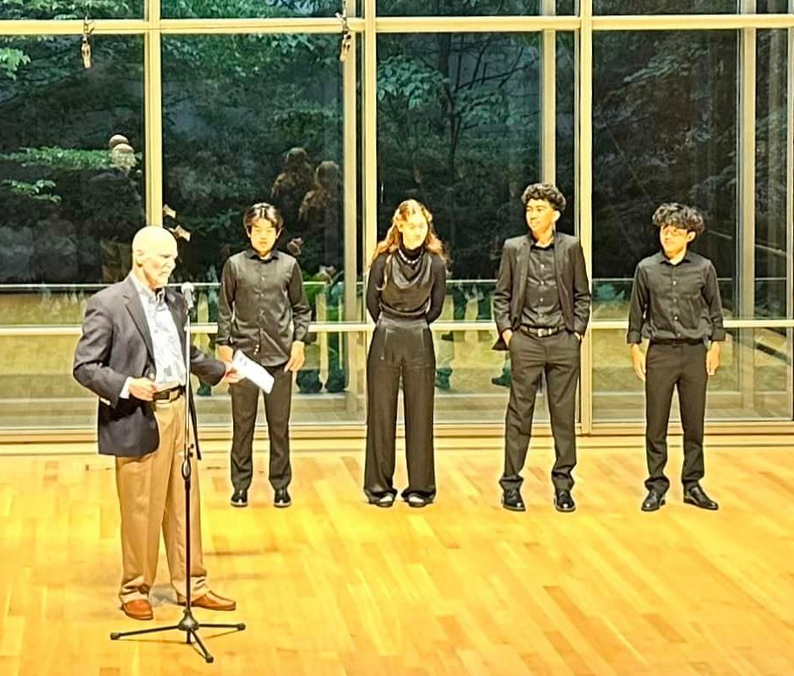by Daniel Hathaway
NEWS BRIEFS:

Venue Change: The June 14 ENCORE Chamber Music Institute concert by Jinjoo Cho, Mathieu Herzog, and Hyunsoo Kim at the Oberlin Conservatory, originally scheduled for Kulas Recital Hall, has been moved to Warner Concert Hall. Senior Naturalist Dr. Chris Stanton from the Lorain County Metroparks will open the program with a talk reflecting the festival theme: Planet Earth. The concert program includes works by Handel/Halvorsen, Grieg and Mozart. Tickets are available online.
TODAY’S ALMANAC:
Composer Richard Strauss was born on this date in 1864 in Munich, and so was Polish composer and pianist Aleander Tansmann (in Lodz in 1897), American composer George Frederick McKay (in Harrington, WA in 1899) and American opera composer Carlysle Floyd (in Latta, SC in 1926). The sole departure was French organist and composer Théodore Dubois in Paris in 1924 at the age of 86.
We all can probably name half a dozen Strauss works without really thinking about it, but here’s a lesser-known but very beautiful piece that deserves more attention. Strauss’ Die Tagezeiten (“Times of Day”) written for the 1928 centenary of Schubert’s death sets four poems by Joseph Eichendorff for male chorus and orchestra. Follow along with the score in a performance by the Ernst-Senff Choir and the Dresden Philharmonic.
Unless you’re native of the Pacific Northwest, you may not be aware of the music of McKay, who spent most of his prolific career in the Seattle area. Click here to listen to his Suite on 16th Century Hymn Tunes, originally composed in 1946 for organ, then arranged for string orchestra the following year. CIM graduate John McLaughlin Williams conducts the National Radio Orchestra of Ukraine, in the 1962 version for double string orchestra and celesta.
And if you’re a connoisseur of sentimental 19th century French church music, you’ll be familiar with Dubois’ Seven Last Words, but probably unaware (as I was) of numerous other works by this conservative composer. He occupied several important church and educational positions, but was finally nudged into early retirement from the Conservatoire for conniving to derail the careers of progressives like Ravel. But try out his 1909 Dixtuor (Dectet) for Flute, Oboe, Clarinet, Horn, Bassoon, two Violins, Viola, Cello, and Double Bass (1909).



